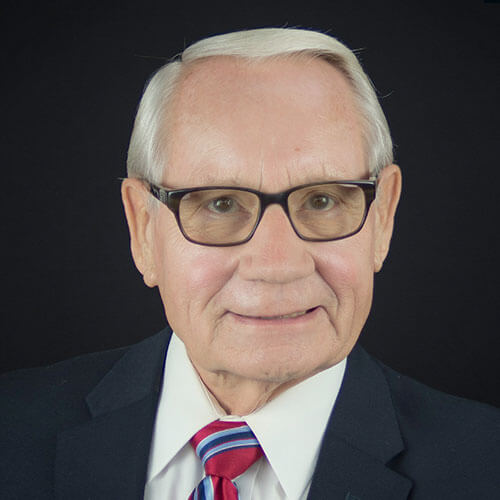2 Timothy 2:1-7
Matthew 9:36-38, “And Jesus went about all the cities and villages, teaching in their synagogues, and preaching the gospel of the kingdom, and healing every sickness and every disease among the people. But when he saw the multitudes, he was moved with compassion on them, because they fainted, and were scattered abroad, as sheep having no shepherd. Then saith he unto his disciples, The harvest truly is plenteous, but the labourers are few; Pray ye therefore the Lord of the harvest, that he will send forth labourers into his harvest.”
Study Acts 16:1-13 along with this text.
How could one possibly overstate the importance of being a spiritual leader in the home, on the job, or in the church?
The purpose of this lesson is to check ourselves to see whether we are leaders or followers. There is nothing wrong with being a follower—most of us are; however, do not attempt to take a leadership role if God has placed you in a followship position.
Notice the importance God places on being faithful like a good soldier or to be a noble soldier, one who entangleth himself not with the world, and one who will strive for masteries as athletes in Greek games, 2 Timothy 2:2-6.
I. THE CALL FOR BUILDING SPIRITUAL LEADERS
- The call to pray to the Lord of the harvest
- The call to train in the home, job, or the church
2 Timothy 2:2, “And the things that thou hast heard of me among many witnesses, the same commit thou to faithful men, who shall be able to teach others also.”
Imagine what the church would be like if everyone worked together as a team. God has much to say about Christians working together because God’s work is based on teamwork. The only way for a church to glorify God is to live in a state of continual harmony, service, and unity. Thank God for the sweetness of Christian fellowship and unity that glorifies the Lord, but the devil would like nothing better than to disrupt such a church.
II. THE CALIBER OF A SPIRITUAL LEADER
One of the greatest attributes of a spiritual leader is honoring God in service to the Lord. Several such attributes are seen in the life of Timothy:
- The influence upon his life
Despite being brought up in a pagan society (Acts 16:1, 14:6- 21), Timothy lived a life well-pleasing to God.
- He came out of a divided family. His father was a Greek and his mother and grandmother were Jewish, 2 Timothy 1:5, 3:14.
- He was brought up in the Scriptures, 2 Timothy 3:14-15.
Paul was his mentor. 2 Timothy 3:10-11, “But thou hast fully known my doctrine, manner of life, purpose, faith, longsuffering, charity, patience, persecutions, afflictions, which came unto me at Antioch, at Iconium, at Lystra; what persecutions I endured: but out of them all the Lord delivered me.”
1 Corinthians 4:17, “For this cause have I sent unto you Timotheus, who is my beloved son, and faithful in the Lord, who shall bring you into remembrance of my ways which be in Christ, as I teach every where in every church.”
- The illustration of his growth
- An evaluation of his character.
- He had genuine faith, 2 Timothy 1:5.
- He had a good testimony, Acts 16:2, “Which was well reported of by the brethren that were at Lystra and Iconium.”
- His preparation for service
Acts 16:3, “Him would Paul have to go forth with him; and took and circumcised him because of the Jews which were in those quarters: for they knew all that his father was a Greek.”
- A spiritual leader must be prepared to give up some of his rights and preferences.
- He must be willing to endure some pain.
- He must be prepared to leave his home and comforts in life.
- The initiation of accountability and productivity
Acts 16:4-5, “And as they went through the cities, they delivered them the decrees for to keep, that were ordained of the apostles and elders which were at Jerusalem. And so were the churches established in the faith, and increased in number daily.”
A spiritual leader must be held accountable for being productive and submissive in his work.
- Yielding to the leadership of the Holy Spirit, Acts 16:6-13
- Must be willing to learn from others
- Must be teachable in all things
- Must show appreciation and let others know of his own commitment
III. THE CONSCIENTIOUSNESS OF SPIRITUAL LEADERS
- Parents
- Give your children back to God, 1 Samuel 1:27-28.
- Be a genuine Christian, 2 Timothy 1:5.
- Esteem the ministry highly, 1 Thessalonians 5:12-13.
- Teach godly character and personal responsibility, Ephesians 6:4.
- Teachers
- Commit to reproducing yourself in teaching.
- Teach them the Word of God.
- Provide teaching opportunities for them.
- Involve young people in Christian service.
- Preachers
- Encourage them to be servants of God.
- Encourage their potential in service.
- Involve them in all areas of service.
- Support them financially when possible.
- Pray faithfully for them and give them wise counsel.
IV. THE COMMISSION OF SPIRITUAL LEADERS
Matthew 20:25-27, “But Jesus called them unto him, and said, Ye know that the princes of the Gentiles exercise dominion over them, and they that are great exercise authority upon them. But it shall not be so among you: but whosoever will be great among you, let him be your minister; And whosoever will be chief among you, let him be your servant.”
- They must be trained for the next generation and be:
- Men of integrity and holiness, Philippians 3:13-14
- Men not trained for success or power, but influence, to be a servant-leader with uncompromising Christian character:
Proverbs 10:9, “He that walketh uprightly walketh surely: but he that perverteth his ways shall be known.”
Proverbs 11:3, “The integrity of the upright shall guide them: but the perverseness of transgressors shall destroy them.”
Proverbs 20:7, “The just man walketh in his integrity: his children are blessed after him.”
- Men of biblical principles, 2 Timothy 4:4
- Men of truth
- Men of faith, Hebrews 11:6
- Men with a controlled family
He must rule his own house well and never let the ministry hurt the family. He must take time for family with days off and vacations.
- Men of servanthood
2 Corinthians 12:15, “And I will very gladly spend and be spent for you; though the more abundantly I love you, the less I be loved.”
Romans 1:11, “For I long to see you, that I may impart unto you some spiritual gift, to the end ye may be established.”
- Men with purpose, Jeremiah 1:5-6
- Be the best by finding God’s will, Romans 1:6, “Among whom are ye also the called of Jesus Christ.”
- Men with a vision, Proverbs 29:18
- Men of prayer
- Prayer is the power that moves the machine
- Men of perseverance
- Men of self-discipline
Will you be that spiritual leader who will lead in the home, on the job, and in the church?
Share this post

Hans Nikoley, GSBC Staff
Bro. Nikoley emigrated from Germany to the United States with his family at age 13. He served full time in the Nevada Air National Guard for six years. At age 32, He was saved, and in 1977, he graduated from Bible College. He pastored for over 31 years, 27 of them at Pomerado Road Baptist Church in Poway, California. Bro. Nikoley has served at Golden State Baptist College in the Bible Department and also as the Student Employment Director since 2007. He and his wife Mary have two children and have been married for 58 years.


I totally agree when you said that a spiritual leaders should be accountable for being productive and submissive when it comes to their work. I think it would show and people would feel if the leader if like that. Personally, I would love to find a person who I can feel has integrity and passion in what they do, and I will gladly be a follower in the ministry they are promoting.